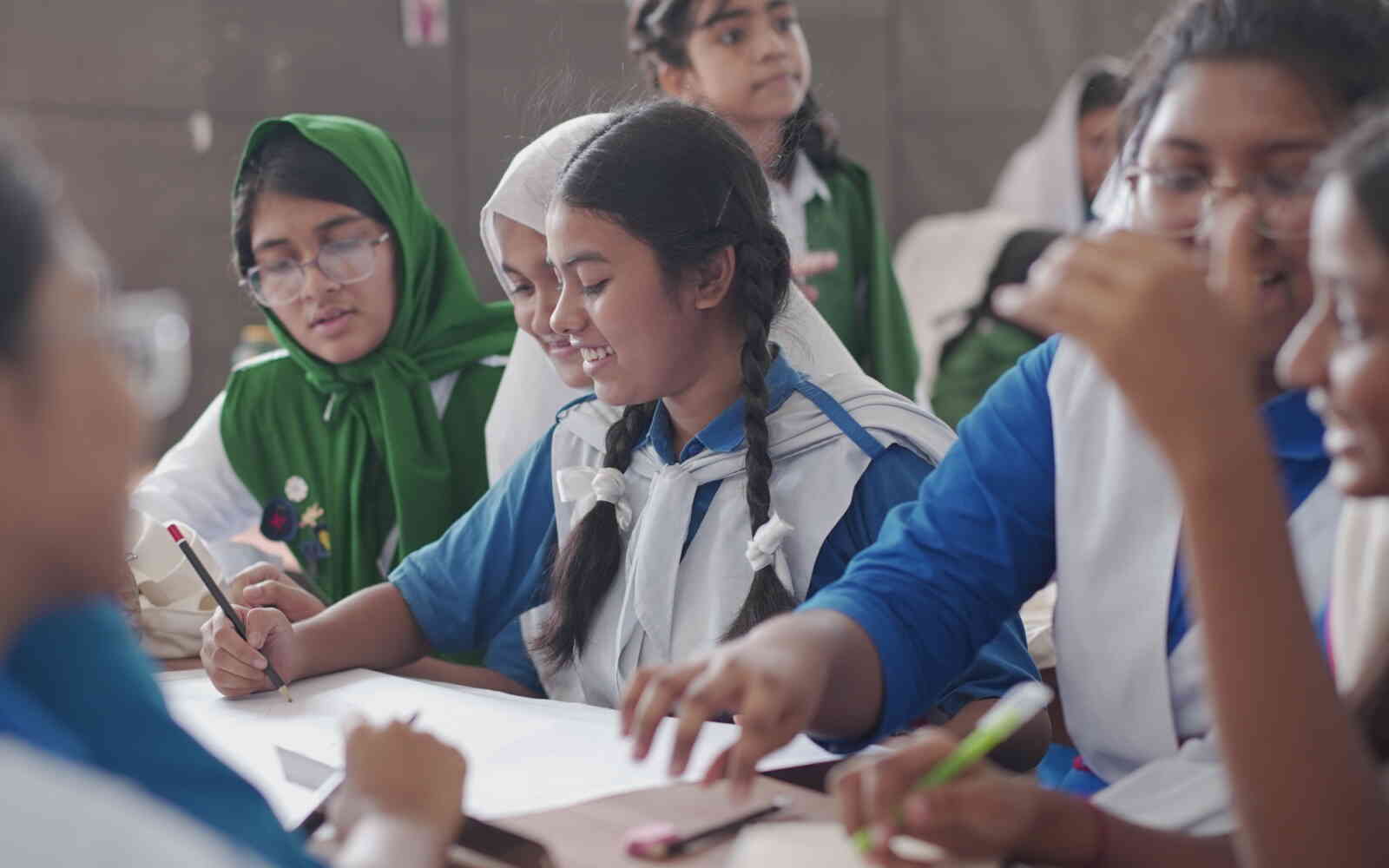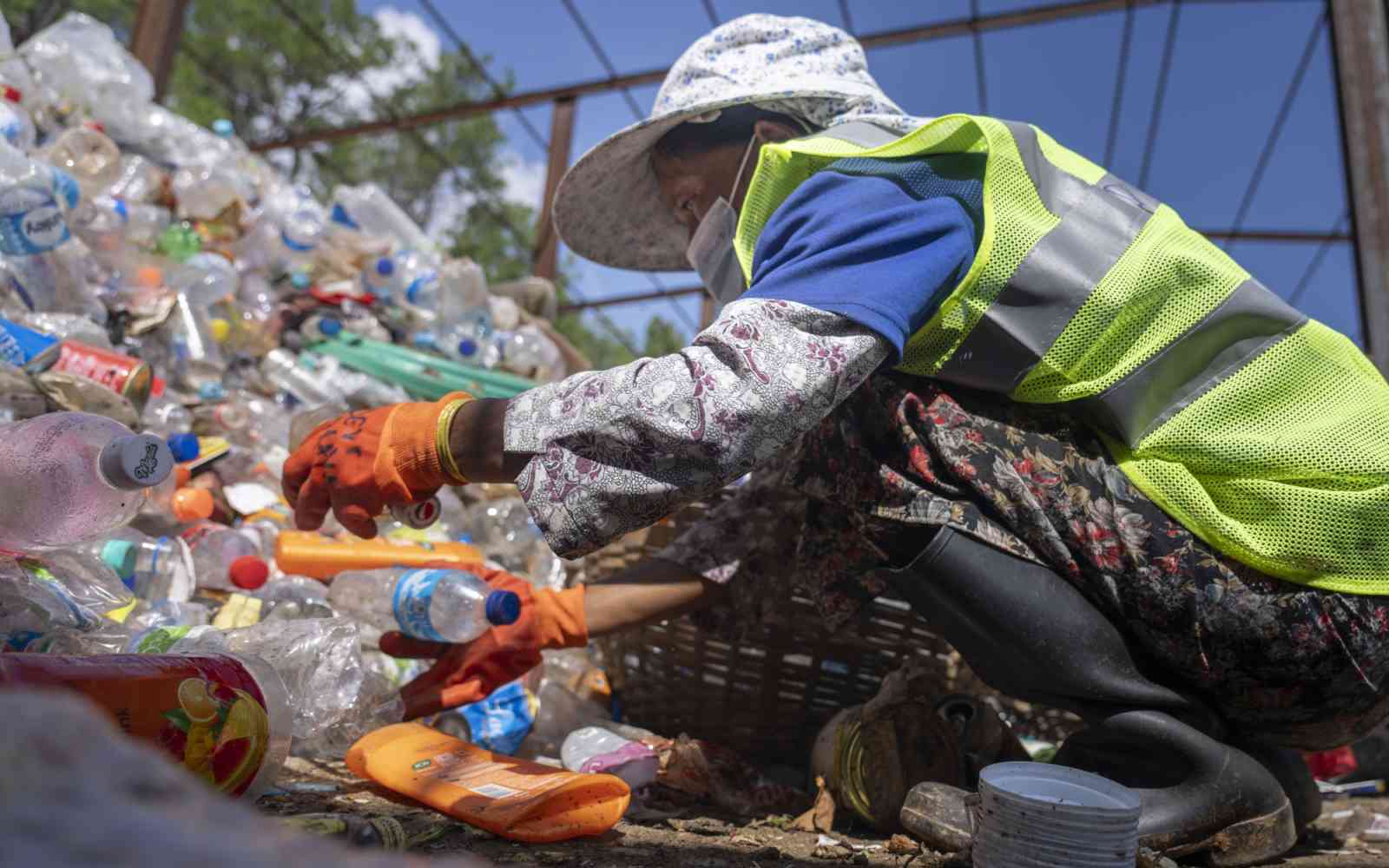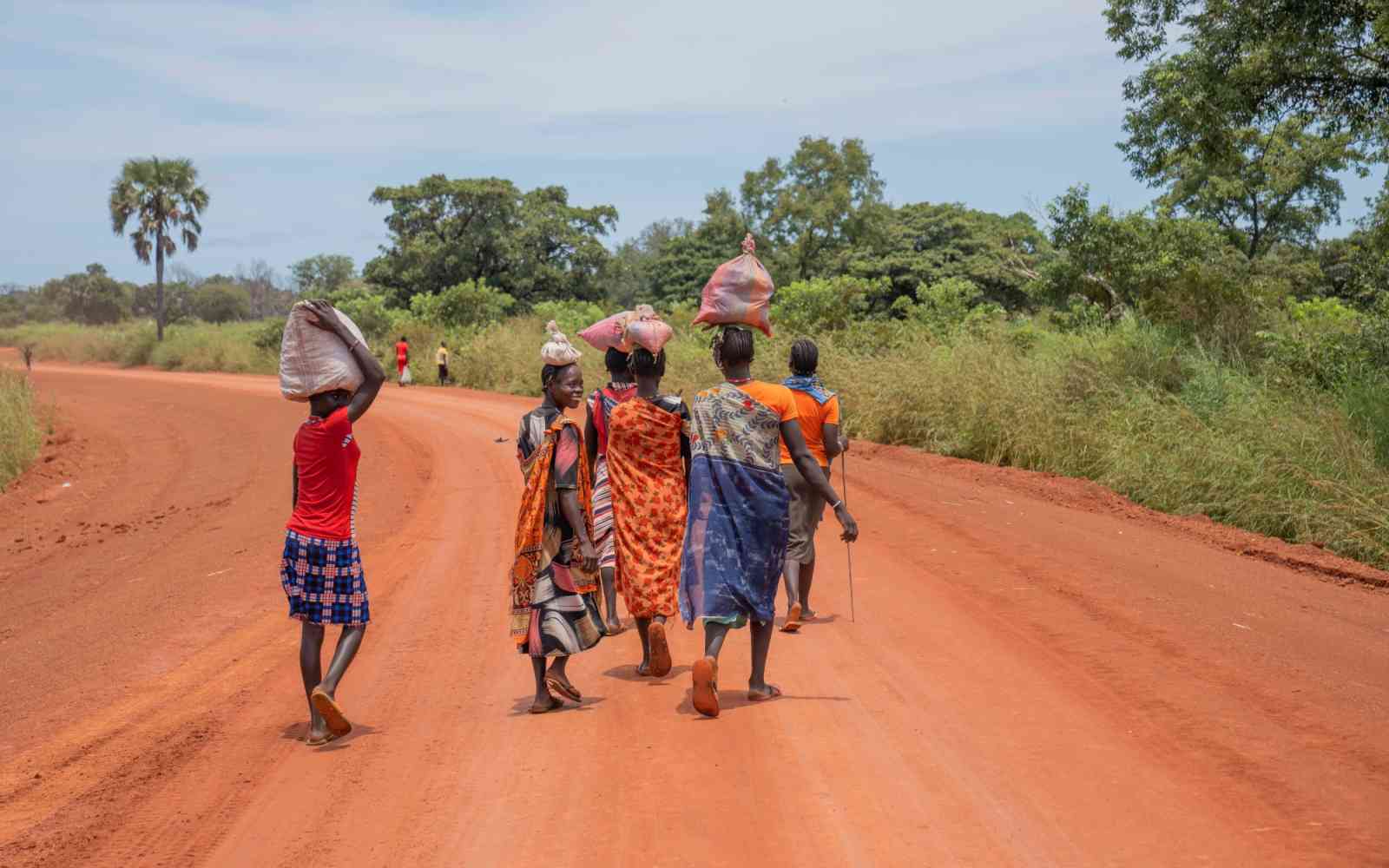The United Nations Office for Project Services (UNOPS)

Lives in Dignity: Stories of strength from the frontlines of displacement
From climate-ravaged villages in Bangladesh to urban neighbourhoods in Colombia and refugee settlements in Uganda, communities are charting new paths toward resilience and dignity.
The Lives in Dignity (LiD) Grant Facility, launched in 2020 and funded by the European Union, was designed to promote long-term, development-oriented solutions to forced displacement.
Managed by UNOPS, the facility supported 14 projects across 15 countries in Africa, Asia and the Americas, reaching more than 950,000 people. By fostering locally led, community-driven initiatives, the facility worked through diverse partners to build resilience, restore dignity and empower displaced and host communities.
Bangladesh
Strengthening climate resilience in coastal Bangladesh
In the remote village of Labubunia, southwest Bangladesh, the land shifts with every season.

The water came through here, from here to here, right where I am standing now. Living here is extremely difficult and dangerous.
Cyclones, floods and rising sea levels have devastated this region. But instead of waiting for another disaster, the community is taking action.
With support from a project under the LiD Grant Facility – run by local NGO Uttaran and Educo International – villagers have formed resilience committees, repaired roads, fortified embankments and worked together to protect lives and land.
“We are learning how to protect our lives and our land,” says Anwar Hossain, who leads local efforts. “Men and women work together.”
The project also strengthened links between communities and government systems, helping restore the social contract disrupted by disasters. With new skills, knowledge and stronger voices in decision-making, residents are better equipped to withstand climate threats – without needing to leave their homes.






Colombia
Challenging discrimination in Colombia’s cities without borders
Colombia is home to nearly 2.8 million displaced Venezuelans. In cities like Medellín, many migrants face discrimination and exclusion.
“When I arrived in Colombia, my classmates constantly taunted me about being Venezuelan,” said Hillary Chantal, a student and barista. “They accused my family of stealing and eating from garbage. I felt ashamed of who I was and where I came from.”
The Cities Without Borders project – an initiative of the University of Antioquia’s Barrio U Lab and Casa de las Estrategias Foundation – tackled this head-on.
With support from the LiD Grant Facility, the project promoted inclusion through research, education and strategic communications. In six cities, over 1,400 students and 109 teachers took part in training that reshaped how displacement is understood in classrooms.
“We need to discover other types of stories in the media,” says Carlos Mendoza, a Colombian construction worker. “Hearing their stories of struggle made me realize we share the same dreams for our families.”
Local media partnerships amplified new narratives, co-creating nine journalistic pieces with migrants themselves.
“The experience of being interviewed and being able to talk about our work was deeply enriching,” says Flor Elena Ruiz, a Venezuelan featured in one documentary. “Through music, we have found a way to contribute positively to the community that has welcomed us.”

South Sudan-Uganda
Fostering peace along the South Sudan-Uganda Border
In Uganda’s Palabek refugee settlement, near the South Sudan border, displaced families are no strangers to the trauma of displacement. They face daily challenges – but also opportunities to rebuild.
“We have received a lot of support to help us cultivate this land,” says Onama Kennedy, a refugee farmer. “This has helped bring the group together.”
With support from the LiD Grant Facility, the Lutheran World Federation and South Sudan-based Community Development Support Services implemented a cross-border peacebuilding project that combined integrated responses combining livelihoods, protection, education, and water and sanitation.
Training in agriculture brought together host communities, returnees and refugees – boosting food security and strengthening social ties. But healing extended beyond fields.
“We work with severely depressed women,” says Jennifer Oroma, who leads a psychosocial support group in Palabek. “As these women share, they learn and their fellows learn from them. It has helped both refugees and host communities to live together.”
What made this project unique was its cross-border dimension. By working with local leaders and border officials, it supported freedom of movement and safe returns when conditions allowed.
The reason I came back is because people called us on our phones. We interacted, and they said home is okay.

With new skills, networks and confidence, returnees like Odingo are now contributing to peace and development in their homeland.




The Lives in Dignity Grant Facility
The Lives in Dignity Grant Facility: A development-oriented approach
The LiD Grant Facility set global commitments to improve support for those affected by displacement into action. By prioritizing local leadership, valuing Indigenous knowledge and promoting collaboration between traditional and non-traditional actors, it offered a new model for development in displacement settings.
Through multi-thematic and community-led interventions, the facility helped people transition from aid dependence to self-reliance, demonstrating how strategic grants can be harnessed to deliver dignified, long-term solutions for communities on the move.











